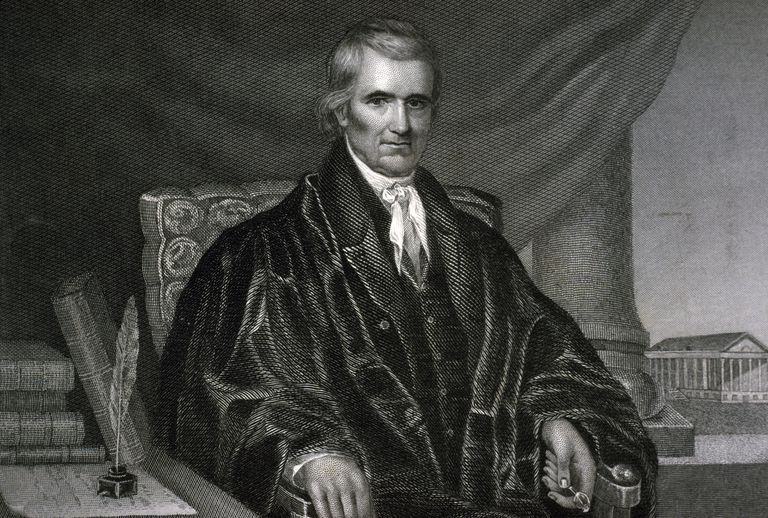Thomas Jefferson’s Constitutional Hardball

I think this is likely right, not that I would want to take the chance:
A lame duck replacement of Ginsburg is the only way I could see conservative Dem senators getting behind a court-packing push. It is the kind of action that would, I think, provoke a real reaction. https://t.co/nrAoCT6pLV— b-boy bouiebaisse (@jbouie) July 17, 2020
A few days ago, SpiderDan asked:
Do you have any prior examples of intensely-opposed action taken during the lame duck session by a party leaving power?
Well yes, yes I do. After John Adams lost in 1800 to Thomas Jefferson, Adams and the last-ever Federalist Congress in its lame duck period rushed through a bunch of judicial nominees, including a new Chief Justice and a filling positions in newly created circuit courts. The Judiciary Act of 1801 also sought to reduce the size of the Court to 5 after the next justice stepped down, denying Jefferson his first nomination and further entrenching Federalist control of the Court.
The Jeffersonians were rightly furious, and responded strongly in 1801 and 1802:
- The new circuit courts were abolished.
- The sixth seat was restored. (A seventh seat would be added for Jefferson to fill in 1807.)
- The Supreme Court’s 1802 term was cancelled.
- Jefferson and Madison refused to recognize judicial appointments that had not been delivered, leading to the famous Marbury decision.
We have historical precedent, in other words, for abuse of lame duck powers leading to some serious constitutional hardball. The Supreme Court was very much in danger of being effectively strangled in the crib.
What saved the Court is the strategic savvy and tactical retreats of John Marshall, the new Chief Justice (and Secretary of State who failed to deliver William Marbury’s appointment.) In Marbury, he admonished Jefferson for not giving Marbury his vested appointment but struck down a provision of the Judiciary Act of 1789 as a pretext for refusing to issue a writ of mandamus Jefferson and Madison would have ignored. In Stuart v. Laird, a much more important (though less famous) decision handed down a week later, the Court upheld the very constitutionally dubious elimination of the circuit court judges.
And this deference didn’t end in 1803, either. Marshall was always very careful not to take national political elites head on, and this was true even of his landmark nationalist opinions. McCulloch was handed down after Madison and other Jeffersonian elites had come around to supporting the national bank. Gibbons v. Ogden eliminated a state steamboat monopoly basically everybody hated. But when Jefferson and Jackson were in the White House, Marshall was very quiescent, preserving the Court for the future.
In our current historical moment, Republicans probably aren’t capable of Marshall’s restraint. If Ginsburg died at 9 AM on January 3rd and Dems were about to take over the Senate, McConnell would probably have Associate Justice Rao confirmed by 11. John Roberts has some of this preservation instinct, but adding a sixth Republican vote (which a certain Denver sports homer in comments repeatedly but very, very wrongly declared unimportant) makes his views on the matter irrelevant unless he can get another Republican to go along, and good luck with that.
If Ginsburg can’t make it to noon on January 3rd, a further escalation of Republican constitutional hardball is highly likely. Democrats need to be prepared to act accordingly with all the tools available to dismantle an illegitimate Supreme Court.
